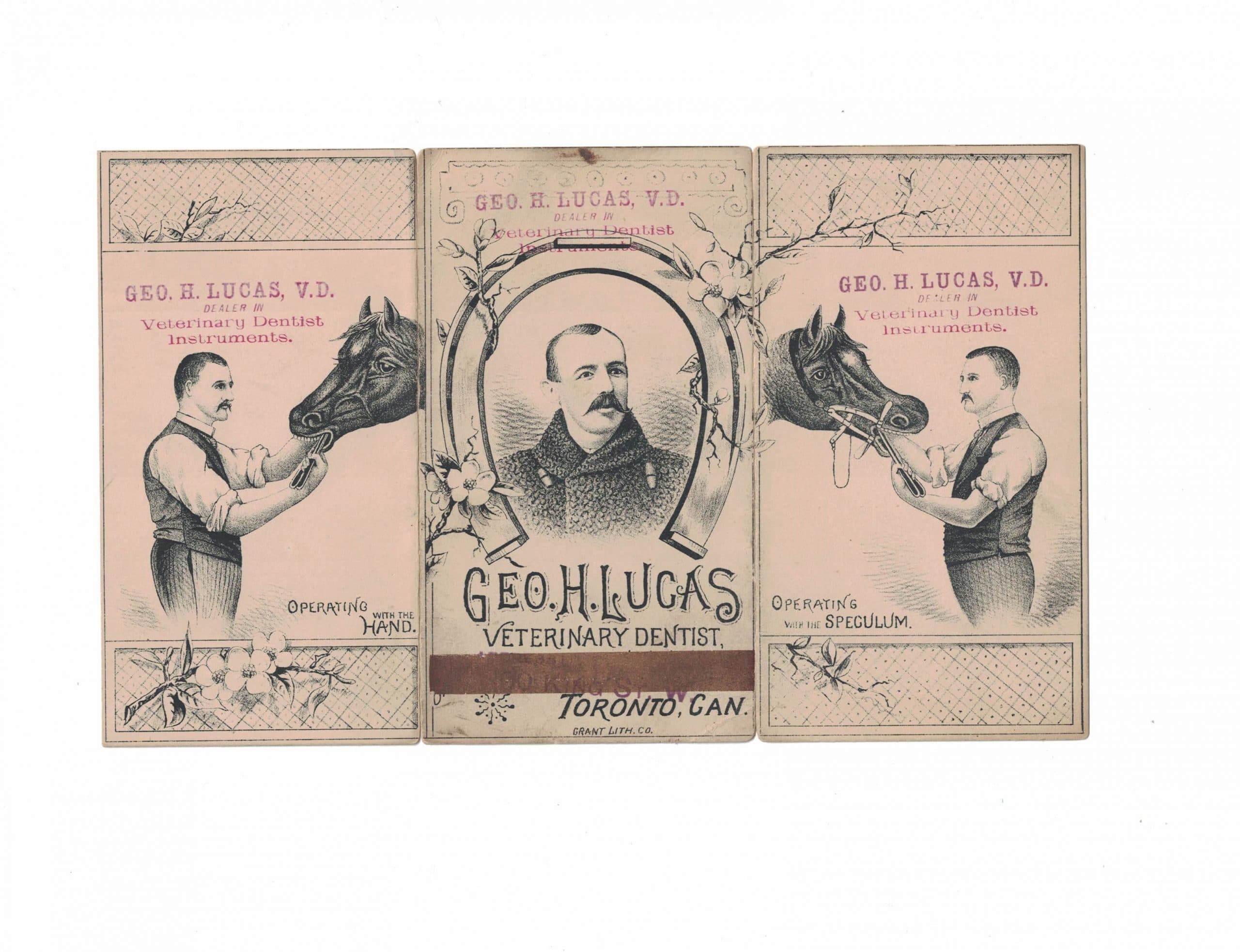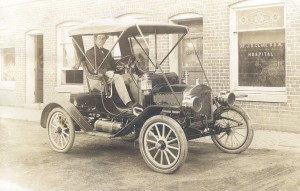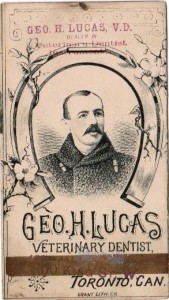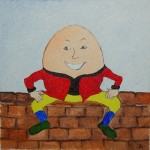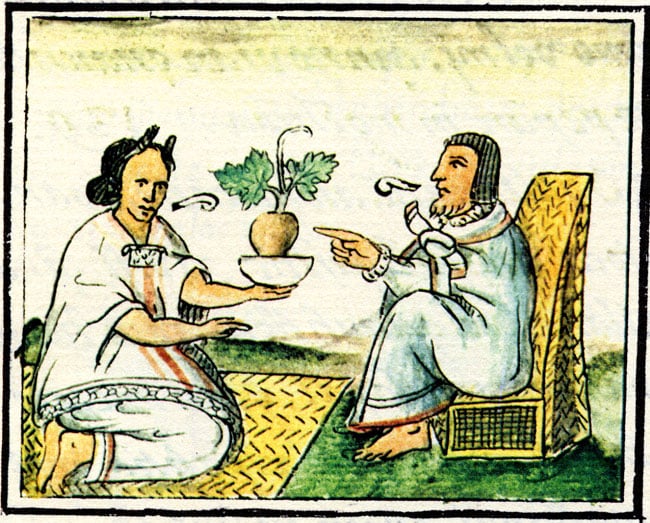When I got out of veterinary school, taking care of the horse’s mouth was part of the job of being a veterinarian who worked on horses. We had some introduction to the topic in school, we learned how to take down sharp edges and points and level the chewing surfaces (“floating”),* and we learned how to recognize serious problems that were related to the teeth, such as tooth root infections or sinus problems. **
For a while, all was happy. The horses got along fine, I did some regular work on horse’s teeth, and fixed the occasional serious problem, or referred it to a specialist (usually a surgeon). Everyone seemed content and no one really pointed fingers at each other (including the horses, who, after all, don’t have fingers).
Sadly, it seems that states of contentment are not meant to last. So, in the early 1990’s, as best as I can remember, all of a sudden, a new “expert” re-entered the field of horse care: the “equine dentist.” As it turns out, “horse dentists have, in fact, been around for a while – see the illustration below, from the 19th century. But insofar as the horse’s mouth went, things suddenly went from being pretty darn good to pretty darn confusing, at least insofar as horse owners go.
Not that the horse had anything to do with this, of course. The horses seemed to be doing fine, oblivious to what the people sticking the fingers and tools into their mouths were called. But during the course of my career, it seems like change happened overnight, horse-mouthwise. Whereas previously, the horse’s mouth was an area that needed to be visited once in a while to make sure everything was OK – sort of like a favorite uncle’s house – all of a sudden the horse’s mouth was a constant area of concern. The horse’s mouth became more like the grocery store; you had to go in there all the time and check things out to make sure you weren’t missing out on any specials. And, worse, all of a sudden – horror of horrors – apparently I (as a mere veterinarian) wasn’t interested in, and didn’t know how to take care of, the horse’s mouth!
RELATED ASIDE: At this point in the 21st century, it seems like there’s a decent-sized contingent of the horse-owning population that believes that the best veterinary advice doesn’t come veterinarians. Rather, that contingent seems to believe that the best advice comes from people that proclaim themselves to be (and sometimes even “certify” themselves to be) experts!
MARGINALLY RELATED ASIDE: CLICK HERE to see what I think about “certified” experts.
I mean, I don’t personally believe that veterinary medicine has all of the answers to all of the problems of the horse, but at the same time, I must confess that it’s pretty frustrating, as a licensed professional, to watch customers go hook, line, and sinker for someone whose sole credentials consist of having qualified for an automobile loan at some point in time. Nevertheless, pretty much from thin air, once the dental rage started, barns were crawling with “dentists” who knew a few things for absolute certain.
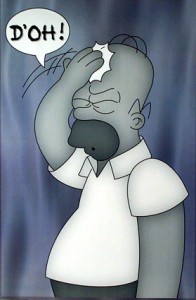 1. Your horse needed to have his teeth worked on. If the only tool that you have is a hammer, you’d better look often to see if you can find anything that even resembles a nail.
1. Your horse needed to have his teeth worked on. If the only tool that you have is a hammer, you’d better look often to see if you can find anything that even resembles a nail.
2. Whoever had done the previous job didn’t do it right.
3. If that previous person was a veterinarian, he or she sure wasn’t doing it right, because the veterinarian either didn’t know anything about teeth, didn’t have time to take care of teeth, wasn’t interested in doing teeth, or some combination of all three.
Far be it for me to question anyone’s right to work, but it does seem to me that if you’re going to claim to be a professional (e.g., a “dentist”), that you should have something to back up the claim. In general, people tend not to take very kindly to someone who falsely represents himself as an expert. Call me old fashioned, but I think titles should mean something.
So, what does it mean to be a “dentist?” Here’s the definition, from Merriam-Webster.com “One who is skilled in and licensed to practice the prevention, diagnosis, and treatment of diseases, injuries, and malformations of the teeth, jaws, and mouth and who makes and inserts false teeth.”
NOTE: The word “licensed.” Licensed professionals are regulated and tend to carry insurance if something goes wrong: veterinarians, for example. If something goes wrong during treatment, and the person isn’t licensed, and doesn’t have insurance, you are likely to be out of luck.
What’s required to be a dentist for people? The U.S. Bureau of Labor Statistics reports that more than 85% of dental students that intend to work on people obtain a bachelor’s degree prior to entering dental school. While no specific undergraduate degree is required, students commonly take science courses in biology, anatomy, chemistry and microbiology. Then, they go on to take another four years of dental school. Pretty rigorous, actually (kind of like veterinary school).
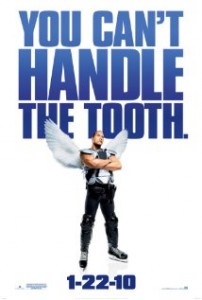 So what’s it take to call yourself an “equine dentist?” Well, in a word, nothing (or maybe hubris). There is no training or expertise that is required to call yourself an “equine dentist.” There are some outfits run by self-proclaimed experts who “certify” their graduates to work on horse teeth. There are also some people who are licensed and trained who have chosen to work exclusively on horse teeth. Those people do have a name – they are called “veterinarians.” But, in most cases, the “equine dentist” moniker is one that’s adopted by somebody who has a set of files – or worse, power tools – and has managed to convince some segment of the horse-owning population that he or she knows exactly what the horse’s mouth needs. And, whatever it needs, it usually needs it a lot, and often.
So what’s it take to call yourself an “equine dentist?” Well, in a word, nothing (or maybe hubris). There is no training or expertise that is required to call yourself an “equine dentist.” There are some outfits run by self-proclaimed experts who “certify” their graduates to work on horse teeth. There are also some people who are licensed and trained who have chosen to work exclusively on horse teeth. Those people do have a name – they are called “veterinarians.” But, in most cases, the “equine dentist” moniker is one that’s adopted by somebody who has a set of files – or worse, power tools – and has managed to convince some segment of the horse-owning population that he or she knows exactly what the horse’s mouth needs. And, whatever it needs, it usually needs it a lot, and often.
And the thing is, for most horses, it’s really not that difficult to do a decent job leveling and smoothing the horse’s teeth on occasion. That’s why you have unlicensed “equine dentists” but you don’t have unlicensed colic surgeons visiting the barn every week, trying to convince you that you need to open up your horse’s abdomen. The former takes a strong arm and an opinion – the latter takes some serious skill and rather expensive equipment.
Now I don’t want this to come off as too much of a rant, but in my mind, the real question that needs to be answered when it comes to “equine dentists” is, “Is getting a horse’s teeth filed regularly really the key to proper nutrition and optimum performance, or is it just a chance to get scammed by some enterprising and sincere individual who decided to start grinding away on horse teeth because 1) It’s a mostly cash business, and 2) He didn’t own enough ties to seriously compete for the job as a waiter at a high-end restaurant?”
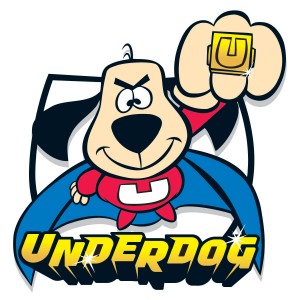 Honestly, if you can pull off being an equine dentist, you’re likely to have a pretty good gig. I mean, after some nominal expenses for equipment, you’re pretty much set. You can set your schedule as you like, and you don’t have to worry about those pesky emergencies like cuts, colics, or foaling. But for veterinarians who have chosen to make a career out of working on the entire horse, who have chosen to be there for you whenever there’s a problem, it can be pretty galling – as well as disheartening – to have an “expert” show up at the barn to take away part of their practice income, and tell everyone that veterinarians don’t know what they’re doing anyway.
Honestly, if you can pull off being an equine dentist, you’re likely to have a pretty good gig. I mean, after some nominal expenses for equipment, you’re pretty much set. You can set your schedule as you like, and you don’t have to worry about those pesky emergencies like cuts, colics, or foaling. But for veterinarians who have chosen to make a career out of working on the entire horse, who have chosen to be there for you whenever there’s a problem, it can be pretty galling – as well as disheartening – to have an “expert” show up at the barn to take away part of their practice income, and tell everyone that veterinarians don’t know what they’re doing anyway.
Look, I know you love your horse. And, you may also bey optimistic, somewhat anti-establishment, someone who loves underdogs and quick fixes, and on the lookout for some “better” way to take care of your beloved steed. For some reason, it seems to be easier for some people to believe that some fellow with a truck full of instruments and a form with horse teeth printed on it holds the key to horse health and making the horse go around a show arena as happy as a clam, than it is to buck up, get the horse out for some exercise, and focus on improving their riding technique.
Anyway, I just hope that before you run out to get an “occlusal equilibration”*** done on your horse’s mouth by the fellow that had to choose between being an equine dentist and a furniture tester, that you might consider asking for some documentation of his or her expertise, and maybe an insurance card, too. And you might want to consider whether you want to give your business to the person who stops by periodically to overcharge you for services that may not be needed, or to the person who will be there for you day or night, and looks at taking care of your horse’s mouth as part of a pretty great job.
***********************************************************************************************************
* “Floating” in this instance means to make level and smooth, as is done when freshly poured cement is floated to give it a flat surface on which you can park or drive your car (for example).
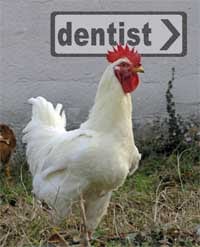 ** Serious dental problems sometimes require referral to a specialist veterinarian who is trained in equine surgery, but may also sometimes be referred to veterinarians who have developed a special interest in the horse’s mouth, and work in the field. I do plenty of routine work on horse teeth, and very occasionally have to refer a horse for more serious problems. However, in my practice, more serious problems are pretty uncommon – rare as hen’s teeth, as it were.
** Serious dental problems sometimes require referral to a specialist veterinarian who is trained in equine surgery, but may also sometimes be referred to veterinarians who have developed a special interest in the horse’s mouth, and work in the field. I do plenty of routine work on horse teeth, and very occasionally have to refer a horse for more serious problems. However, in my practice, more serious problems are pretty uncommon – rare as hen’s teeth, as it were.
*** “Occlusal equilibration” is a very fancy term that fairly recently came into existence, replacing “floating” (as defined above). “Occlusion” refers to the contacts between the teeth; “equilibration” means to bring into a state of physical balance. The term is essentially meaningless, or, rather, it means exactly what the person doing the “equilibration” says it is supposed to mean. Or, as stated by Lewis Carroll’s character Humpty Dumpty, in Through the Looking Glass, “When I use a word, Humpty Dumpty said, in rather a scornful tone, it means just what I choose it to mean, neither more nor less.”

